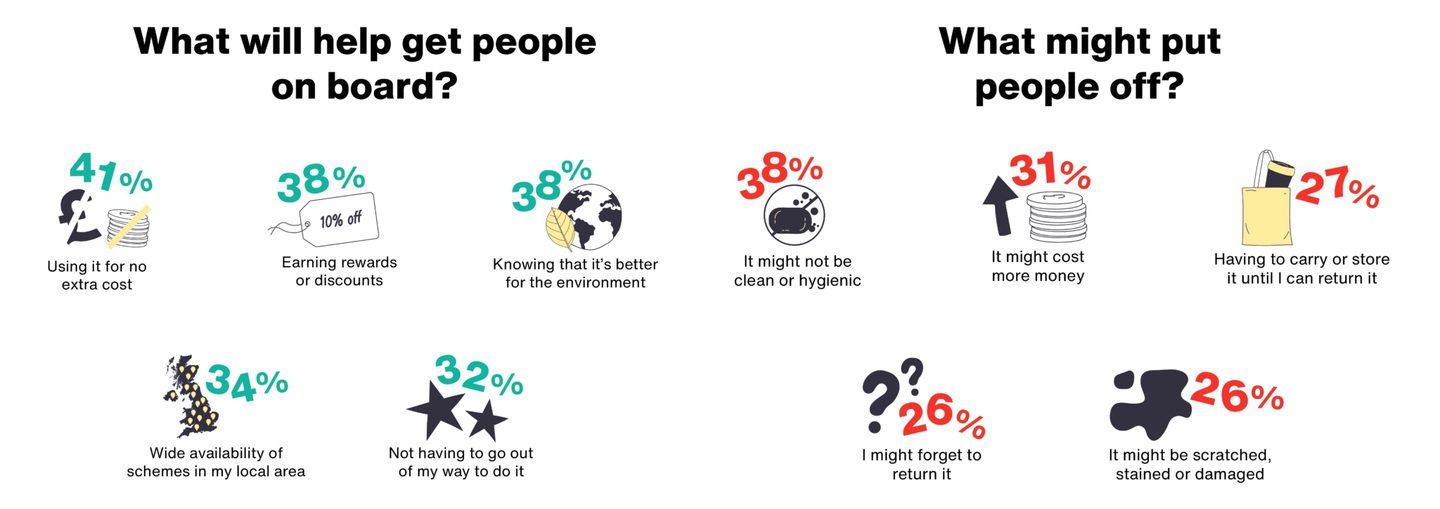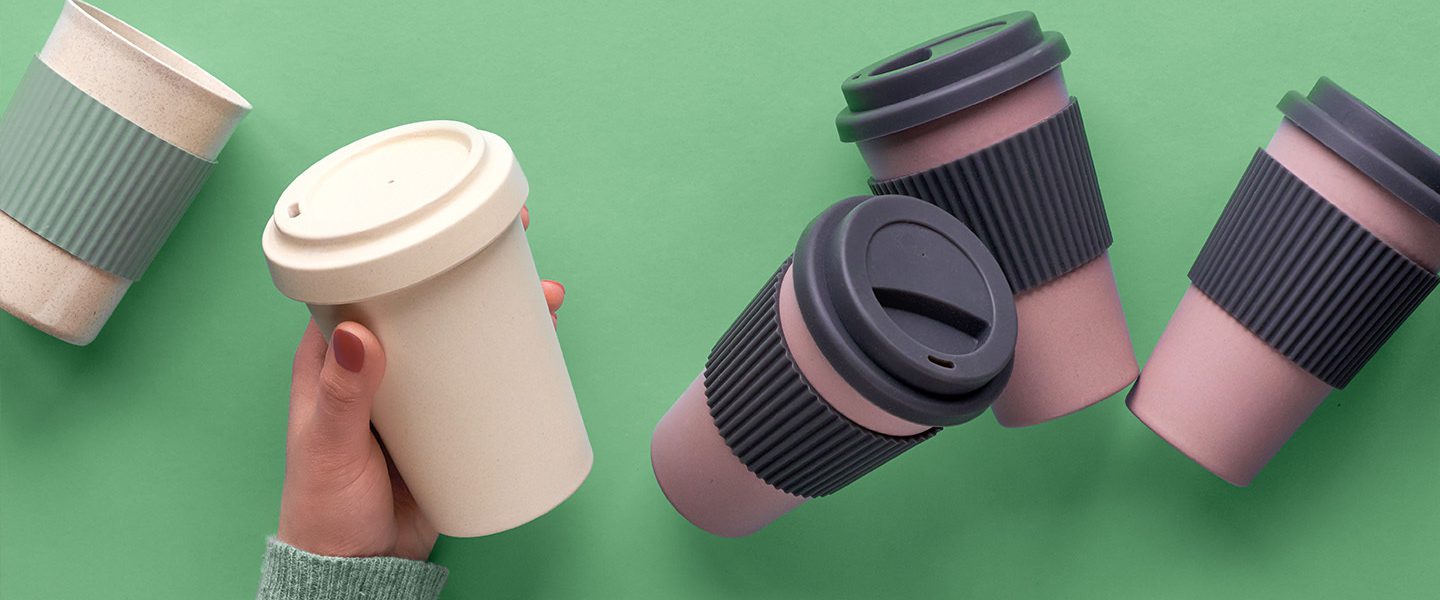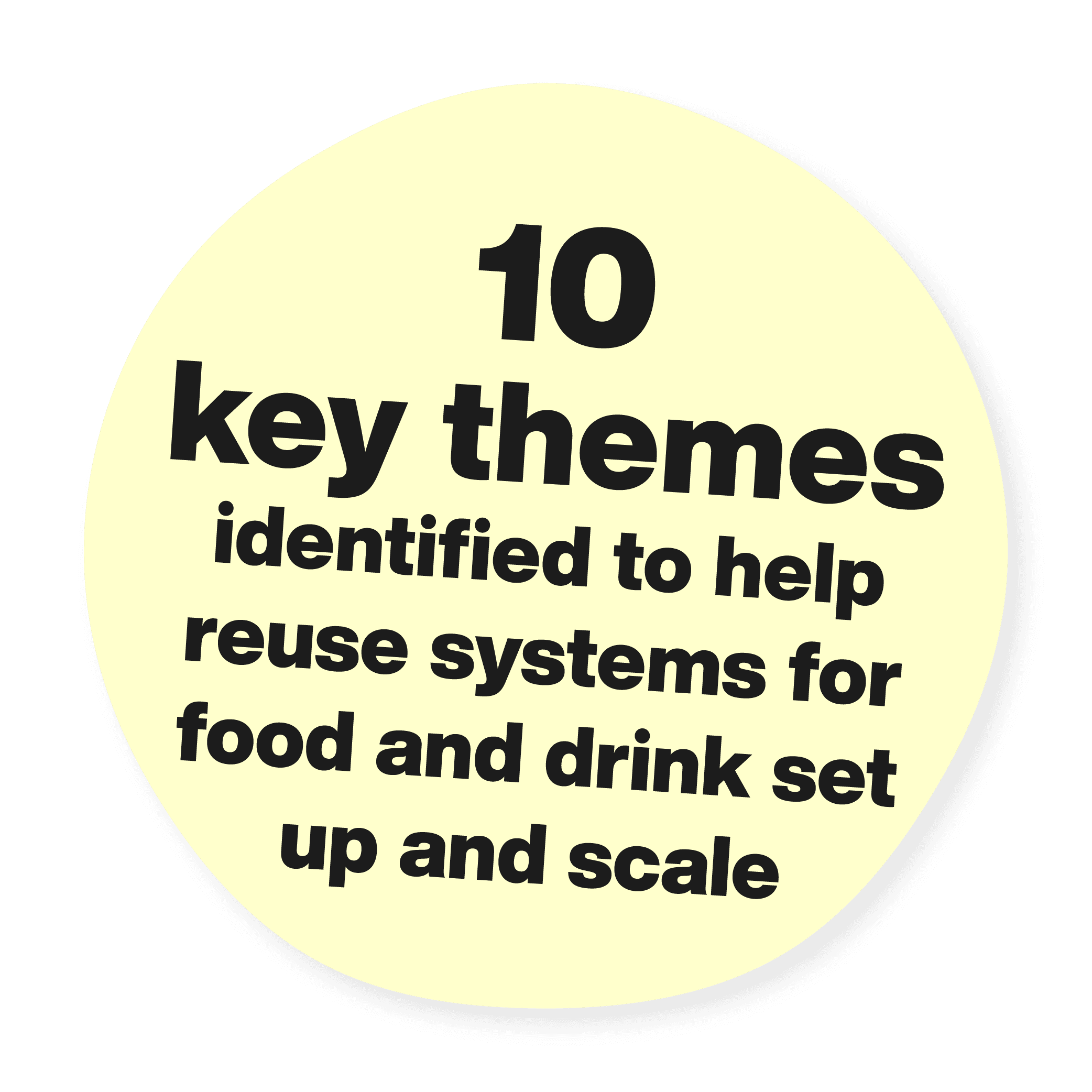Reuse Systems Unpacked
UK households throw away nearly 100 billion pieces of plastic packaging a year, 83% of which is food and drink packaging (Greenpeace). How can we create a society where reusable packaging is a savvy solution to reduce this whopping amount of waste? We set out to find the answer, speaking to over 40 UK organisations and doing polling with 3000 people to explore what the challenges and opportunities are for reusable food and drink packaging systems.
Read the report to discover our 10 recommendations to help reuse systems in this sector set up and scale, sharing practical experiences, innovative approaches and insightful public opinion.
A refreshing solution to an unappetising situation
Imagine daily life without single-use food and drink packaging. It’s not easy, is it? It’s engrained in our everyday habits, with 10.7 billion pieces of single-use packaging coming from lunch on-the-go every year. Around the world, producing, using and disposing of plastic creates about 1.8 billion tonnes of carbon emissions every year, and around a third of plastic packaging ends up in the wrong place, polluting the environment (WRAP).Reusable packaging offers a solution to have a lower impact on the environment. Lots of trials have been conducted in this sector, but it’s a tough nut to crack. Big behaviour change is needed in the way we shop, eat, drink and dispose of packaging, and big systems change is needed in the way that businesses produce, distribute and sell their products. The valuable learnings from these trials haven’t been brought together in one place before to figure out what works, what doesn’t, and how future reuse systems can go further and do better. So that’s exactly what we decided to do.
Asking the experts
With funding from Bunzl, we interviewed 40 organisations in the UK and Ireland, from start-ups and reverse logistics companies to brands and policymakers, to get their insider knowledge on the challenges and opportunities for reusable food and drink packaging. We also carried out polling to discover what would encourage people to use a reusable packaging scheme, and what might put them off.
So what did we learn? Packaging up the insight
We packaged up everything we found out in Reuse System Unpacked, a report sharing practical insights from across the sector and the 10 key themes to help reuse systems for food and drink set up and scale. This is what we learnt:
- Convenience is key
- Keep down the price
- Choose the right incentives and payment models
- Build integrated logistic
- Be smart with packaging design
- Understand lifecycle analysis and return rates
- Collaboration is the way forward
- Consider the role of technology
- Offer reassurance to reduce hygiene concerns
- Support growth through policy and regulation
How can we get people on board?
The polling revealed that 73% of people in the UK think more needs to be done to make it easier to choose reusable alternatives to single-use food and drink packaging. The great thing is there’s lots of ways that we can help get people on board with using reusables: 41% people say they would use reusables if there was no extra cost, and 38% say earning rewards and knowing it's good for the environment would encourage them too. Discover more in our Reuse Systems Unpacked report.

What’s next for Hubbub’s work on reusable food and drink packaging?
We’re supporting projects in this space through the Bring It Back Fund, a £1m grant fund run in partnership with Starbucks, which builds upon our work supporting the circular economy through the Circular Future Fund with the John Lewis Partnership. We’re also putting our learnings into practice by running behaviour change campaigns to encourage more uptake of reuse and refill solutions with food and drink retailers – stay tuned for updates.


